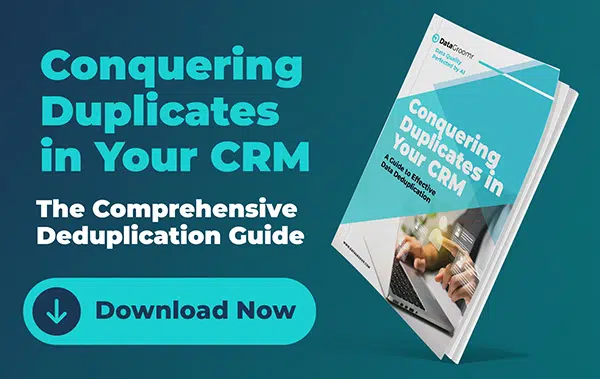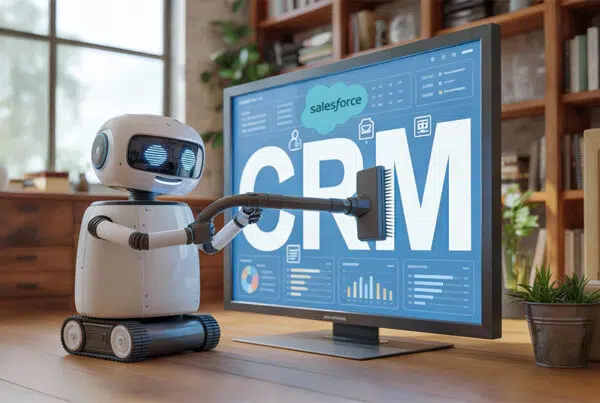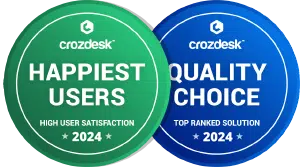
In the current competitive digitized world, customer expectations keep changing at a scorching rate. Consumers have come to expect rapid, relevant, and hyper-personal experiences at all points. Consequently, companies are investing in artificial intelligence (AI) in order to compete. One of the most revolutionary technologies is Einstein GPT, the generative AI engine by Salesforce which is changing how organizations handle customer experience (CX). Einstein GPT is an intelligent and advanced system that builds natural customer relations using Salesforce real-time CRM data, enhanced by the capabilities of large language models (LLMs). It thus assists in meeting customers with more intelligence, speed, and humanity than ever.
What Is Einstein GPT?
The world’s first generative AI natively integrated into a CRM, Einstein GPT was introduced by Salesforce in 2023. In contrast to generic generative tools, Einstein GPT does not access generic data repositories but rather uses actual customer data within the Salesforce ecosystem. This enables Einstein GPT to generate content and responses that are not merely plausible, but highly relevant. It may be used to compose emais from sales reps, to create customised marketing messages, to summarize case notes for service agents, and to evengive next-best action rules in real time. Its results seem relevant, specific and goal-oriented because it utilizes context-like customer interaction, customer behavior history and business rules.
The Evolution of Customer Experience
Einstein GPT marks the next stage of customer experience development. Conventionally, human customer agents were simply provided with scripts or decision trees. Though these approaches were somewhat effective, they were not dynamic or customized. The second wave of automation tools— such as chatbots and workflow engines— are swifter, yet quite rigid. Then, data-driven personalization introduced targeting, but it still needed manual requirements to use and make variations. With intelligent automation through generative AI (such as Einstein GPT), we have now reached the era when interactions can be personalized at scale, generated on demand, and adjusted in real-time, according to actual customer behavior.
Delivering Hyper-Personalization at Scale
Hyper-personalizationat scale is among the impressive capabilities that Einstein GPT is capable of. For example, a marketing department can create versions of content to be used fora number of different types of customers— with each version focused using a particular tone, on specific product interest, or customer phase. Agents working in service can use AI-provided suggestions which are based on previous problems, preferences or purchases, enabling each communication to seem customized. Such a level of relevancy helps to instill trust and fulfilment..
Maintaining a Human Touch
Another significant advantage of Einstein GPT is the balance between automation and humanity. Most AI systems do not work well when it comes to sounding natural and conveying human understanding and tone. Einstein GPT though, creates content that is reflective of brand voice and customer mood. It may be made formal to tackle important clients or casual to handle routine questions. These human-like elements create a more natural and less robotic feel to AI communication, lowering the likelihood of customer dissatisfaction and enhancing engagement.
Proactive Engagement, Not Just Reactive Support
Einstein GPT also helps in proactive interactions with customers and moves businesses towards a more predictive and preemptive support model. Using its data analytic insights and real time features, a company can send a helpful follow-up, send recommendations at the right time, or even solve a problem before the customer makes contact. Not only does this bring customer delight, but it also lessens the pressure on support teams, enabling them to focus their time on more complicated, high-value cases.

Empowering Human Teams
When it comes to teams, one of the most practical, but less discussed benefits of Einstein GPT isthat it empowers employees. An example would be customer care representatives, who might waste time on systems, work on old tickets and write similar messages over and over again. Einstein GPT can reduce this burden through automated summarization of cases, creation of personalized responses, and action recommendations. This will increase agent productivity, shift agent focus to higher-level problems, and improve job satisfaction.
The Importance of Data Quality
It is necessary to note that the effectiveness of Einstein GPT has its very base in the quality of data it receives. Generative AI does not necessarily provide accurate information, it mirrors the information it uses. In case CRM data is old, incomplete, or inconsistent, these drawbacks will be present in the AI’s output . Precise, complete, and clean data will enable the AI to create valuable, reliable, and pertinent content. As an example, wrong customer information might generate embarrassing and even legally risky messages. Bad data hygiene can lead to irrelevant messages, distorted insights, and failed personalization attempts. Organizations should thus consider data quality one of the fundamental pillars of any AI strategy. This implies investing in data governance, frequent auditing, seamless integration across systems and proper procedures for data entry and maintenance.
Applications Across Industries
Einstein GPT can impact various sectors. It can create personalized promotion offers, dynamic product recommendations and support responses in retail and eCommerce. In finance, it can be used to create regulatory compliant client notifications, get a high level overview on market conditions or create custom tailored investment advice to wealth managers. In healthcare, Einstein GPT can help with patient communication in a caring way, patient follow-ups, and appointment scheduling, all considering patient history. It can be used in travel and hospitality services to improve customer experience by offering multilingual experiences, creating itineraries, and delivering proactive service when disruptions are experienced.
Addressing Challenges and Ethical Considerations
Naturally, there are some challenges of adopting Einstein GPT. Privacy of data and compliance should run top of mind. AI-generated content should comply with regulations including the GDPR and HIPAA regulations, especially given that it could encroach on sensitive personal information. Organizations must also be prepared to protect against inaccuracy or hallucinations when generative models will make up stuff that sounds realistic but incorrect. The best way to mitigate this involves a good mix of using prompts that are well structured, the integration of real time data, and checking information by humans. To prevent the possibility of bias in either training data or AI outputs, it must also be subject to continuous review and ethical moderation.
Finally is the issue of change management: employees will require some training to be able to properly use and trust AI, and leadership will have to demonstrate the benefits of such technology to their employees.
What the Future Holds
Looking ahead, Einstein GPT is likely just the beginning of Salesforce’s AI journey. Future upgrades will likely include multimodality generation (also visual and voice), higher verticalization and even more integration with external platforms and ecosystems. With each interaction, the AI will be smarter and even more responsive from real-time feedback loops. AI copilots will be a norm that impacts all lines of business and is infused into everyday actions and routines.
The Strategic Edge of Generative AI
Einstein GPT provides a view of the future of shared collaboration of AI and man in creating customer experiences beyond expectations. Its success however does not solely depend on its technology, but it depends on how meticulously it is employed. AI can have an impact on delivering great customer experiences, and yet the key to great customer experiences results from a combination of intelligent systems, clean data, ethical practices and human empathy. For businesses that embrace this future with discipline and imagination, Einstein GPT offers more than a productivity boost—it offers a strategic advantage and a path to truly differentiated customer relationships.










